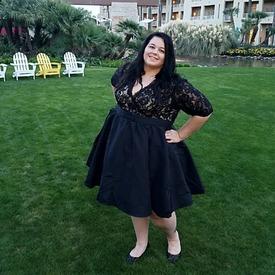Jogging/Running vs Walking?
Replies
-
Ok...lt me start by saying that I didn't run .. other than to play soccer as a kid..but as an adult...nope... until Feb 2011 and now I run daily.
Yes, running is hard on the joints..like someone said...you are airborne momentarily and your full body weight comes down on your joints. And lots of runners have joint issues, but then so do many people who have never run a day in their life.
Now, walking vs running to burn calories...not a true statement. Running puts you into cardio mode and your heart rate is higher. You will burn more calories here, although it's not what is called "fat burning". This happens when you stay below your Anaerobic Rate. To burn fat, your body requires oxygen and when your heart rate gets about your AR your blood is carrying less oxygen.
Walking in your fat burning zone will burn more fat calories, but you'll have to walk longer/farther AND be sure to stay in your fat burning zone.
WIth Running...because of the compressions when you run...you are also working muscles in your core and arms. Something you don't get with walking.0 -
Running is harder on your joints relative to speed-walking, in the same way that speed-walking is harder on your joints than walking, and walking is harder on your joints than lying on a hammock with a nice margarita.
You made me laugh out loud! I almost spit water all over my computer!0 -
Great article about calorie burn with running and walking
http://www.chatelaine.com/en/article/27884--do-walking-and-running-burn-the-same-amount-of-calories0 -
Calorie burn has 100% to do with heart rate and effort. IF the effort expended and heart rate are the same, you will burn more jogging. BUT, a walk at 5mph is a heck of a lot harder to maintain than a jog at 5mph. You will burn more calories walking in that instance because you are working harder.
A cool thing to think of, and it's all about interval training... full on sprinting for 30 seconds followed by a 4 min walk at a brisk pace, then repeated 4 times (for a total of 18 minutes) can burn more calories than a slow jog for an hour. (Self Magazine)
**edit
I still choose to run 99% of the time. I LIKE running.0 -
Running is terrible for you! It will make your uterus fall out. You've been warned...
What?!?0 -
Just listened to a news report on NPR about this not too long ago. Check this article out and/or give a listen...
http://www.npr.org/2011/03/28/134861448/put-those-shoes-on-running-wont-kill-your-knees
I'm still quite overweight, but the fastest pace I've ever run a mile is just over 11 minute/mile, and I average somewhere between 12:30-13:30, which I think isn't too traumatic on my joints at this point. Every time I get mad that I can't sustain a faster pace, I tell myself that it's probably for the best and the smaller I get, the faster I can go.0 -
I volunteer/participate in a lot of races and you'd be surprised how many of the runners are older people who seem to have no trouble at all. Running CAN cause problems if you have improper form, bad shoes, etc...but in general I think if done properly with the right nutrition, it's very good for you. I personally burn a lot more calories during a run than I do a walk.0
-
Running is terrible for you! It will make your uterus fall out. You've been warned...
LOL!! Boy there are soooo many excuses out there why you shouldn't run, that's gotta be one of my favorites!
I will keep running till I can't run anymore! And it will be because I'm dead, not because I have bad knees, hips or feet.0 -
Running is terrible for you! It will make your uterus fall out. You've been warned...
LOL!! Boy there are soooo many excuses out there why you shouldn't run, that's gotta be one of my favorites!
I will keep running till I can't run anymore! And it will be because I'm dead, not because I have bad knees, hips or feet.
Or because you tripped over your uterus, and sprained an ankle.0 -
Running is terrible for you! It will make your uterus fall out. You've been warned...
OooOoOooOO, I hope so!0 -
Running is harder on your joints relative to speed-walking, in the same way that speed-walking is harder on your joints than walking, and walking is harder on your joints than lying on a hammock with a nice margarita.
Fabulous! Love this! 0
0 -
Running is terrible for you! It will make your uterus fall out. You've been warned...
LOL!! Boy there are soooo many excuses out there why you shouldn't run, that's gotta be one of my favorites!
I will keep running till I can't run anymore! And it will be because I'm dead, not because I have bad knees, hips or feet.
You laugh, but till recently the medical community thought that distance running would damage women's reproductive systems. That's one of the big reasons that there was no women's Olympic marathon until the 80's.
The moral of the story is that maybe doctors don't know everything.. Including the one about running destroying your joints.0 -
http://www.runnersworld.com/article/1,7120,s6-242-304-311-8402-0,00.html
I just remembered where I read the article on calorie burn!!!0 -
Am I the only one still stuck on the drinking margaritas......
.....but then I'll have to jog 6 miles just to work off that one margarita or walk 10........sigh. Guess I'll have to just keep thinking about it and not partake - lol........0 -
Would it help if I told you "Give me an opinion and I'll give you the statistic to prove it"? I'm no expert but I do read a lot. There is a lot of proof that running is actually good for your bone density and that it's when we stop challenging our body that our bodies start to deteriorate. And then there are plenty of people who were runners and can't anymore . Only conclusion you can draw is the safe one- Do what YOU can Do. There's no telling if all those ex runners were also eating horribly un-nutritious foods (unlikely- but you know some of them were), or if the runners still going just never ran on pavement, or if barefoot runners last longer than shod runners.
All I know is I love running, and I love running far. I also love walking, but it's a lot slower....
Agree'd0 -
All I know is I love running, and I love running far. I also love walking, but it's a lot slower....
I exercise by Minutes, not miles. And by heartrate, not pace.
So
it doesn't matter to me whether I am running faster, walking slower, or jogging along at an easy pace.
The minutes go by, and my workout is complete.
:-)0 -
check out this info about Sister Madonna Buder...She began training at age 48 at the behest of Father John who told her it was a way of tweaking, "mind, body, and spirit" and for the relaxation and calmness it can bring an individual. She completed her first Iron Man event at age 55 and has continued ever since.
http://en.wikipedia.org/wiki/Madonna_Buder0 -
This is a very common topic, I've read countless articles on it!
It depends on what the speed is. If you had a choice to walk at 4.2mph or jog at 4.2mph your body is actually going to get more of a workout by walking at this speed because it is more difficult to maintain a walk at this speed than a jog.
That being said, if you jog 5.2mph for the same amount of time as walking, say, 4.2mph, your heart rate will heighten at 5.2 and you will burn more calories and get in a tougher workout.
"If you run for 20 minutes or walk for 50 minutes, you end up burning about the same amount of calories. But if you walk for 20 minutes or run for 20 minutes, running will create the biggest calorie deficit." -www.active.com
I totally agree!
Do what you like to do, I prefer to walk fast, less impact on my knees.0 -
I tried jogging at 258 and my knees were killing me, I am trying it again now that I am under 200lbs and dont have the same issue! I'm doing it because i know its great for fat burning0
-
i run and i love it! i totally agree that you need to be fitted for the right shoes and have some kind of coaching. after getting my new shoes (fitted to my foot type) and being in a running club where i am constantly pushing myself and gaining knowedge i am increasing both distance and speed. i think problems happen due to wrong shoes, lack of knowledge and over training....the best advice i have had is to have rest days in between runs to let your joints and body recover. havent found anything that gives me as much of a sweaty workout as running so that has to be good!:laugh:0
-
Part of the problem with this type of discussion is that terms like "hard on your knees" are used without a common definition.
Running is a high-impact activity. Because of that, running is associated with a higher rate of injury. However, the injuries associated with running are not usually *degenerative* type injuries--i.e. deterioration of the cartilage or bones themselves. The vast majority of injuries are *overuse* injuries to soft tissue--tendons, muscles and ligaments.
So, if you are referring to actual joint damage, then the statement "running is bad for your joints" in NOT true. In fact, running can actually strengthen the joints.
If you modify the statement to read "running has a higher rate of injury to soft tissue", then the answer is YES--very much so.
The risk can be managed through proper footware, appropriate training plans, stretching, muscle strengthening, etc. However, given the increased stresses of running, some people will find that they just can't do it. Running will expose any biomechanical defects.
In terms of calorie burn, it is all about intensity. In most cases, running is inherently more intense than walking, and thus will result in higher calorie burn. There is a small range of racewalking speeds where the racewalking stride is less efficient than the running stride and so racewalking will burn more calories (i.e. has a higher intensity) than running at the same speed. However, for most people that will never be an issue. In most cases, if you have the ability to race walk at that high of a speed, you have the ability to run even faster, so it wouldn't make sense to walk unless there was a physical reason why you could not run.
The equations that are used to predict energy expenditure for walking or running are only valid for a certain range of speeds. For walking, it's 4.2 mph and slower; for running, it's 5.0 mph and faster. If you are running slower than 5.0 mph (12:00 per mile), you are most likely burning more calories than you would walking at that same speed, however there is too much variation between individuals to develop a valid prediction equation.
The old saying that "you burn the same calories per mile, regardless of speed" is only partly correct. It is true when comparing walking speeds to walking speeds and running speeds to running speeds, but NOT for comparing walking speeds to running speeds. In other words, a person walking 3.0 mph will burn the same number of calories per mile as they will walking 4.0 mph, and someone running 6.0 mph will burn the same number of calories per mile as they will running 7.0 mph, but someone walking 4.0 mph will burn significantly fewer calories per mile than they will running 6.0 mph.
Not everyone can run--the impact demands of running and the intensity of running are too much for some people. Not everyone wants to run.
The energy cost of walking can be boosted in a number of ways:
1. Walking at an incline--this is esp useful on a treadmill. Turn down the speed, crank up the hill, let go of the handrails, and you can approximate the calorie burn of running.
2. "Power walking"--an exaggerated arm swing (thumbs come up to shoulder height)--with or without hand weights--can increase the intensity of your walk.
3. Walking with a weighted vest--personally, I don't think this is as effective, and it could increase the risk of injury, but there are some ways to incorporate this in a walking workout.
4. Race walking -- this can be very effective, but there is a higher learning curve associated with it--you really have to work at learning the technique.
As I have always said, people should not be afraid of running--but people should not feel compelled to do it either. Like any exercise modality it has its pros and cons. You just want to make use you are basing your decision on facts, not "sayings".0 -
Thank you so much for all the great information!0
-
One way to make sure it's not so hard on the joints is trail running. Plenty of statistics out there that show running on ground and earth is a lot better than running on the hard surface of the road.
But there is some good news for if the knees give out in old age. By that time, I should be able to qualify for the Silver Sneakers swim club down at the Y.0 -
I read this today
http://www.active.com/running/Articles/Run-walk-run_to_faster_times__faster_recovery.htm
And this
http://www.active.com/running/Articles/10_Steps_to_Start_Running.htm
And the
Easy Does It Intro to Fitness and Running
:-)
http://www.jeffgalloway.com/training/condition.html0 -
Part of the problem with this type of discussion is that terms like "hard on your knees" are used without a common definition.
Running is a high-impact activity. Because of that, running is associated with a higher rate of injury. However, the injuries associated with running are not usually *degenerative* type injuries--i.e. deterioration of the cartilage or bones themselves. The vast majority of injuries are *overuse* injuries to soft tissue--tendons, muscles and ligaments.
So, if you are referring to actual joint damage, then the statement "running is bad for your joints" in NOT true. In fact, running can actually strengthen the joints. <snip>
EXCELLENT POST! Thank you!!!0 -
A couple days last week, I ran for 30 min @ 6.5mph & 2% incline (3.3miles). Then I walked for 30 min @ 4mph & 5-8% incline (2 miles) right after. Burned about the same amount of calories (~400 each half hour).
Of course everyone burns differently & it all depends on if you would rather walk or run.0 -
I have been researchingg this as well because I have been jogging alot lately. According to many articles I have found, the only way running will be negatively impacting your knees is if you already have arthritis or something of the sort.http://m.livescience.com/36241-5-experts-answer-running-bad-knees.html0
-
I would like to know as well.. Runners LOVE running. It's an addiction. But yeah, what about later in life?
Runners run into there 80s...90s even!0 -
I am a great lover of these exercises. I think running,jogging and walking all are best exercises for fitness. I like to do these exercises everyday. To maintain weight these exercises are perfect for everyone.0
This discussion has been closed.
Categories
- All Categories
- 1.4M Health, Wellness and Goals
- 398.4K Introduce Yourself
- 44.7K Getting Started
- 261K Health and Weight Loss
- 176.4K Food and Nutrition
- 47.7K Recipes
- 233K Fitness and Exercise
- 462 Sleep, Mindfulness and Overall Wellness
- 6.5K Goal: Maintaining Weight
- 8.7K Goal: Gaining Weight and Body Building
- 153.5K Motivation and Support
- 8.4K Challenges
- 1.4K Debate Club
- 96.5K Chit-Chat
- 2.6K Fun and Games
- 4.8K MyFitnessPal Information
- 17 News and Announcements
- 21 MyFitnessPal Academy
- 1.5K Feature Suggestions and Ideas
- 3.2K MyFitnessPal Tech Support Questions






















